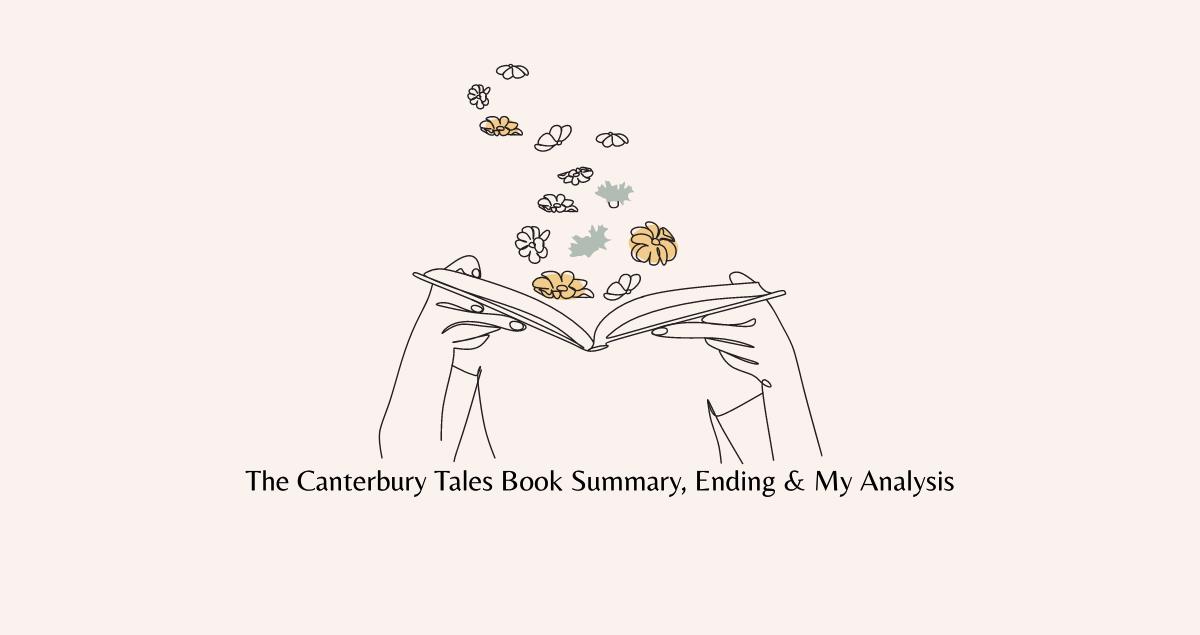The Canterbury Tales is about a group of pilgrims who are traveling to the shrine of Saint Thomas Becket in Canterbury. To pass the time, they each tell a story, creating a rich tapestry of medieval life and reflecting the social order of the times. The tales are full of humor, satire, and moral lessons, making them both entertaining and thought-provoking.
Table of Content
The Canterbury Tales Book Summary
The Canterbury Tales begins with a Prologue where the narrator introduces the pilgrims. To while away the journey, they agree to tell stories, with the best storyteller receiving a free meal at the journey's end.
Each character then tells their tale, revealing their personality and social standing through their narratives, which range from the heroic to the bawdy.
The Knight tells a noble story of chivalry and honor, contrasting with the Miller's raucous tale of deception and infidelity.
The Wife of Bath shares a lively account of her five marriages, blending humor with a sharp critique of medieval gender roles.
As the journey progresses, the pilgrims continue to entertain each other with stories that reflect their individual beliefs and experiences.
One of the most memorable tales is that of the Pardoner, who preaches against greed and then reveals his own deceitful practices, showcasing the theme of hypocrisy.
Throughout the tales, characters engage in lively debate and banter, shedding light on the complex social dynamics of the time.
The Host interrupts the storytelling to offer his own tale, bringing the total to 23 stories, but the work remains incomplete as Chaucer likely intended to write more.
Among the final tales is one by the Parson, a sincere sermon on repentance that stands in contrast to the worldly and often cynical stories that have come before.
The pilgrims reach Canterbury and visit the shrine of Thomas Becket, concluding their journey with shared laughter and a renewed sense of camaraderie.
The Canterbury Tales Quotes
- All good things must come to an end.

- Patience is a conquering virtue.

- The greatest scholars are not usually the wisest men.

The Canterbury Tales Ending Explained
At the end of The Canterbury Tales, the pilgrims have reached the end of their journey and the storytelling contest is over.
The Host declares the winner, but the text remains unfinished, leaving the resolution of the contest and the final parting of the pilgrims open to interpretation.
The work ends with a retraction by Chaucer, reflecting on his own fallibility and asking for forgiveness, adding a personal note to this engaging collection of stories.
Characters in book The Canterbury Tales
- The Knight: A chivalrous and valiant warrior returning from a campaign.
- The Wife of Bath: A bold and lively woman with a wealth of experience in love and relationships.
- The Pardoner: A clergyman who sells fake relics and indulgences, a deceitful character.
- The Miller: A strong and brawny man who tells a crude and humorous story.
- The Nun's Priest: A monk who tells a fable about a rooster and a fox.
- The Reeve: A steward who tells a story of a miller who is outwitted by two university students.
- The Summoner and The Friar: Both clergy members known for their corrupt practices.
- The Host: The owner of the Tabard Inn who suggests the storytelling game and acts as the judge of the tales.
- The Parson: A devout and honorable clergyman who is the last to tell his tale, a genuine sermon on penitence.
- The Cook: A master of his craft, known for his 'blancmange' but also for his unsanitary habits.
Key Lessons
- Embrace Diversity: People from different walks of life have stories worth telling and lessons to share.
- Question Hypocrisy: Be aware of and resist hypocrisy, both in others and in yourself.
- Value Wisdom over Knowledge: True wisdom is found in the application of knowledge and experience, not just in the possession of facts.
- Seek Understanding: To understand others, one must listen to and appreciate their stories and perspectives.
- Live with Purpose: A life filled with purpose and meaning is more valuable than one driven solely by material gains.
My Personal Opinion
Is The Canterbury Tales worth reading? Absolutely, I found it to be a captivating and insightful work that sheds light on the human condition.
I admire Chaucer's ability to craft such a diverse range of stories, each with its own unique voice and perspective. The blend of humor and social commentary is masterful, and it continues to resonate centuries after it was written. If I were to nitpick, I sometimes found the Middle English language a bit challenging, but most modern editions offer helpful translations or glosses.
I believe The Canterbury Tales is a must-read for anyone interested in literature, history, or human behavior. Its examination of medieval society contains lessons that are still relevant today. This work has the potential to engage and enlighten a wide range of readers, from students of literature to those who simply love a good tale.

